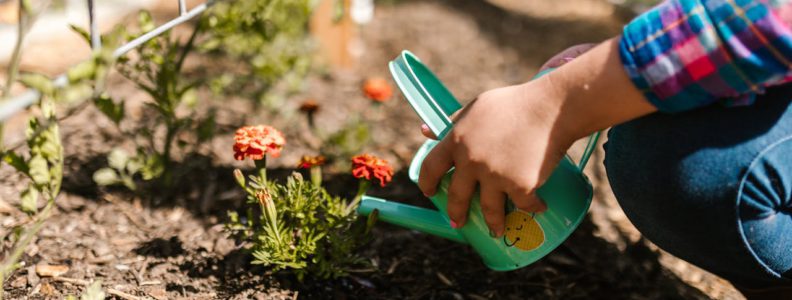In the realm of gardening, success often hinges on the health and vitality of the soil. A thriving garden bed starts from the ground up, and one of the most powerful tools at a gardener’s disposal is garden mulch. Far from being mere decoration, mulch plays a vital role in enhancing soil quality, conserving moisture, suppressing weeds, and fostering a conducive environment for plant growth. Let’s delve into the transformative potential of garden mulch and how it can elevate your gardening endeavours to new heights.
Understanding the Essence of Garden Mulch:
Garden mulch encompasses a variety of materials such as wood chips, straw, leaves, grass clippings, or even shredded newspaper. When spread over the soil surface, mulch acts as a protective barrier, shielding the soil from harsh weather conditions such as extreme temperatures, heavy rains, or intense sunlight. This protective layer is crucial in maintaining soil moisture levels by reducing evaporation, thus ensuring a consistent and conducive environment for plant roots to thrive.
Nourishing the Soil:
One of the primary benefits of garden mulch is its ability to enrich the soil. As the mulch gradually decomposes, it releases essential nutrients into the soil, acting as a natural fertilizer. This nutrient-recycling process nourishes plants and improves soil structure and fertility over time. Additionally, organic mulches like compost or shredded leaves introduce beneficial microorganisms into the soil, promoting a healthy ecosystem essential for plant growth.
Conserving Moisture:
Water conservation is a top priority for gardeners in arid or hot climates. Here, garden mulch proves to be a valuable ally. By forming a protective barrier over the soil surface, mulch helps retain moisture, reducing the frequency of irrigation needed to keep plants hydrated. This moisture conservation saves water and minimizes the risk of soil erosion and compaction, ensuring optimal growing conditions for plants.
Suppressing Weeds:
Weeding is a tedious but necessary task in any garden. However, with the strategic application of garden mulch, weed management becomes significantly more manageable. Mulch acts as a natural weed suppressant, smothering weed seeds and blocking sunlight from reaching the soil surface, thus inhibiting weed germination and growth. This reduces the need for herbicides and saves gardeners time and effort spent on constant weeding, allowing them to focus on more enjoyable aspects of gardening.
Creating a Hospitable Environment:

Healthy soil teems with life, from earthworms to beneficial bacteria and fungi. Garden mulch provides an ideal habitat for these organisms, creating a thriving ecosystem beneath the soil surface. As the mulch breaks down, it attracts earthworms and other soil-dwelling creatures, which aerate the soil and enhance its fertility through their activities. This symbiotic relationship between mulch and soil organisms fosters a healthy and balanced environment conducive to plant growth.
Choosing the Right Mulch:
When selecting mulch for your garden, consider factors such as availability, cost, and the specific needs of your plants. Organic mulches like wood chips, straw, or compost are excellent for improving soil health and fertility. They decompose slowly, providing long-term benefits to the soil. In contrast, inorganic mulches such as gravel or landscape fabric offer durability and weed suppression but do not contribute organic matter to the soil.
Application Tips:
To maximize the benefits of garden mulch, apply it to your garden beds with care. Spread a layer of mulch evenly over the garden soil surface, ensuring a 2-4 inches thickness. Avoid piling mulch directly against plant stems or tree trunks, as this can promote moisture retention and create a favourable environment for pests and diseases. Additionally, replenish mulch as needed to maintain the desired thickness and effectiveness.
Pest Control: Another benefit of garden mulch is its role in pest management. Certain types of mulch, such as cedar chips or pine needles, contain natural compounds that act as repellents against insects and pests. Additionally, mulch creates a barrier that deters pests from accessing plant roots and foliage, reducing the risk of infestations and damage. By incorporating pest-resistant mulch into your garden beds, you can minimize the need for chemical pesticides and foster a more balanced and eco-friendly ecosystem.
Enhanced Plant Health: Beyond its direct effects on soil quality, garden mulch indirectly contributes to overall plant health and vigour. By creating optimal growing conditions, including moisture retention, weed suppression, and nutrient enrichment, mulch enables plants to allocate more energy towards growth and development rather than stress responses. As a result, plants grown in mulched environments often exhibit greater resilience to environmental stressors, such as drought or extreme temperatures. They are better equipped to resist diseases and pest attacks.
Aesthetic Appeal: Besides its practical benefits, garden mulch enhances the aesthetic appeal of outdoor spaces. Mulch comes in various colours, textures, and compositions, allowing gardeners to customize their landscapes according to their preferences and design aesthetics. Whether you prefer the rustic charm of organic mulches like wood chips or the sleek elegance of decorative stones, mulch is a versatile design element that adds visual interest and cohesion to garden beds, pathways, and borders.
In essence, garden mulch represents a multifaceted solution to many of the challenges gardeners face, offering a holistic approach to soil management and garden care. From its role in moisture retention and weed suppression to its contributions to soil fertility and pest control, mulch embodies sustainable gardening principles and ecosystem stewardship. By embracing the benefits of garden mulch and integrating it into your gardening practices, you can cultivate thriving, resilient landscapes that beautify outdoor spaces and support biodiversity and environmental well-being.

